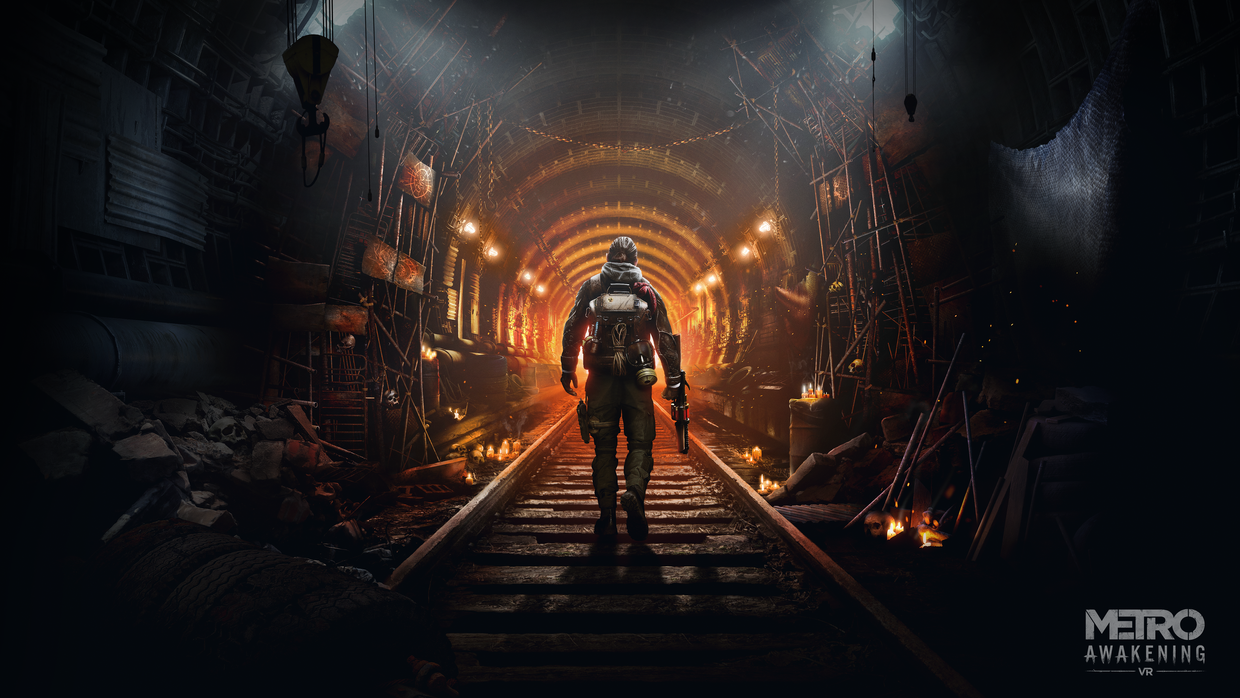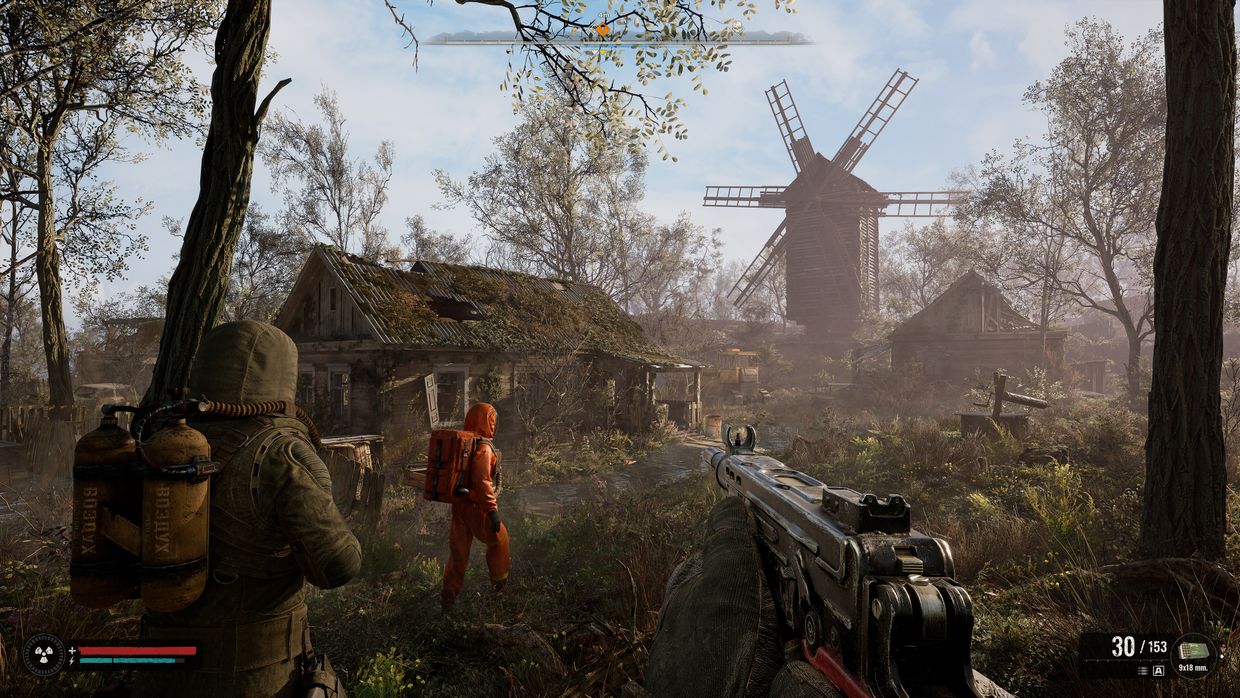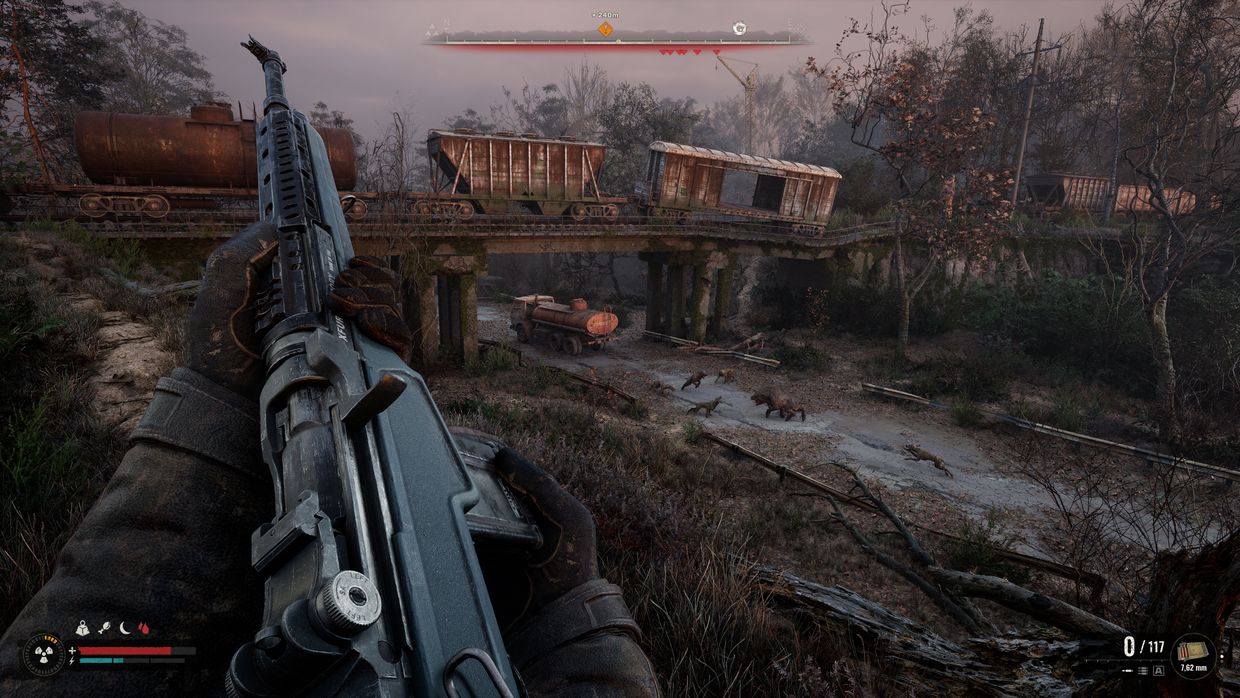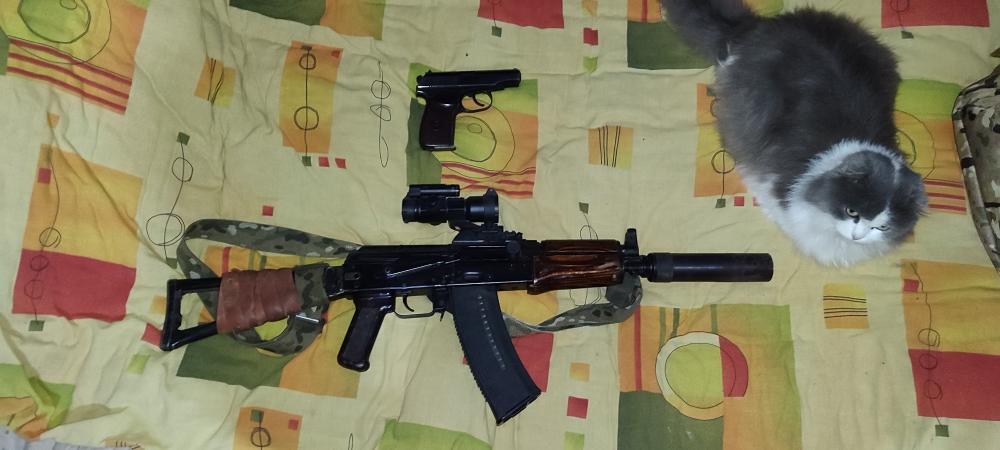Editor’s note: In accordance with the security protocols of the Ukrainian military, most soldiers featured in this story are identified by first names or callsigns only. One soldier is mentioned by first and last name as he is permitted to use his full name with the press.
Ihor was glued to his computer past 1 a.m. playing “S.T.A.L.K.E.R. 2” after the mega-hit video game was released on Nov. 20.
But unlike most of the estimated million and a half players around the world who downloaded the Ukrainian game in its first week, the young Ukrainian fighter was interrupted when he had to leave his glowing screen and camouflaged safe house for a nighttime combat mission.
“Many locations (in the game) are similar to real places where fighting took place. They spark memories,” he told the Kyiv Independent from the front lines.
“Burnt-out houses, abandoned factories or industrial facilities, abandoned buildings in general. Even just locations with fallen trees and scorched land.”
The long-awaited release of “S.T.A.L.K.E.R. 2: Heart of Chornobyl” has been one of the biggest gaming events of the year. The game, developed by the Ukrainian company GSC Game World, quickly shot up to the top spot of global video game sales, with players of the post-apocalyptic first-person shooter game roaming a fictionalized Chornobyl exclusion zone with a weapon in their hand.
Nowhere has this cultural phenomenon been more pronounced than in Ukraine, where the game’s release was marked by congratulatory remarks in parliament, viral cross-promotion campaigns, and memes that the U.S. embassy’s closure that day due to a security threat was really so its employees could download “S.T.A.L.K.E.R. 2.”
But for members of the Ukrainian military, “S.T.A.L.K.E.R. 2” is more than just a game — it’s a way to wind down from the stress of combat and a source of national pride.
Shooting enemies in a virtual Ukrainian landscape may seem like a surprising way for soldiers to relax, but “I always clearly understand where the game is and where it is not,” said Ihor.
“In these games, I do everything the same as in life, but without the fear of dying. It helps me accept traumatic experiences and realize that this is the past, and it needs to be let go.”
“You can’t feel the war through the monitor,” said Evhen, a reconnaissance drone pilot in the 93rd Mechanized Brigade, who goes by the callsign “Teacher.” “The game helps me relax and take a break from everything around me.”
‘Dedicated to all who defended and are defending’
When the game was released, Evhen was at a front-line position, excited to return to his base so he could download it.
“Several of my brothers-in-arms also bought the game. We only play at the base on rest days, not so much on combat missions,” the drone pilot said. “This game is our phenomenon, our pride.”
“S.T.A.L.K.E.R. 2” is the fourth release in the cult-classic S.T.A.L.K.E.R. franchise, produced by Ukraine’s most famous video game company GSC Game World.
The series is so popular among soldiers that many have chosen “Stalker” as their callsign, including four fighters who died in battle.
While the first three games in the series have already been played by millions, “S.T.A.L.K.E.R. 2” took on deeper significance after Russia launched its full-scale invasion in 2022.
Stay warm with Ukrainian traditions this winter.
Shop our seasonal merch collection.
Just ahead of an expected April 2022 release date, the new game was delayed indefinitely as GSC Game World employees suddenly faced displacement, Russian attacks, and blackouts. Some employees joined the Armed Forces, including Volodymyr Yezhov, a developer on the earlier S.T.A.L.K.E.R. games who was killed during the Battle of Bakhmut in Dec. 2022.
From a new office in Prague, the game’s creators had to build new motion capture and audio recording studios from scratch and restart their voiceover recording with new actors.
They changed the game’s name to use the Ukrainian spelling of Chornobyl rather than the Russian version, “Chernobyl.” They also removed Russian voiceovers and have refused to sell the game in Russia, sparking Russian threats and frequent hacking attempts.
Now, the game opens with a message from its creators, dedicating it “to all who have defended and are defending Ukraine. To everyone who made today possible. Eternal memory to all who have been taken by this war.”
‘In S.T.A.L.K.E.R., there aren’t mortar or artillery shells. Or drones’
But gaming at the frontline isn’t always easy, and the powerful hardware needed to run “S.T.A.L.K.E.R. 2” can place it out of reach for soldiers packing light.
One fighter in the 102nd Territorial Defense Brigade who uses the callsign “Shtopor” (“Corkscrew”) describes himself as a “huge fan” of the series — he played the first three games several times as a kid, and even his ringtone is from the franchise.
In more peaceful times, when the game was scheduled to come out in April 2022, Shtopor paid for a brand-new PC on credit so that he’d be able to play the game. Instead, a month later, he was serving in the military carrying a laptop too weak to run the software.
“By coincidence, I even ended up with the same weapon as the main hero at the start of the game” in his favorite part in the series: an AK-74U.
He hopes to try the new game when taking leave next March for his fiancee’s birthday.
Still, “the experience of the game is unlikely to help in real life,” he noted from his position in Zaporizhzhia. “In S.T.A.L.K.E.R., there aren’t mortar or artillery shells. Or drones, either.”
Shtopor isn’t the only fighter who bought a new computer for this game. “Gringo,” an anti-tank specialist in the 72nd Mechanized Brigade, bought his gaming laptop’s most powerful model ahead of the new “S.T.A.L.K.E.R.” release.
With his brigade currently recovering near Kherson, he said he spends “nearly all” of his free time gaming. Some in his brigade who don’t have the right equipment will often watch highlight reels of clips from the game on TikTok, he added.
“The weapons in my hands behave very much like the weapons in the game. They perfectly conveyed the most realistic shooting,” he said, echoing comments from other fighters.
Like others who spoke with the Kyiv Independent, he also pointed out the frequent bugs in the game, an issue raised in most early reviews of the release.
But the bugs were beside the point, many said. One fighter even noted that he and his friends jokingly compare glitches they discover. Glitches — a common complaint during new video game releases — are usually fixed with downloadable patches as developers update games. GSC Game World recently released a patch incorporating player feedback.
‘I see this pain in every pixel’
One thing that strikes most players of S.T.A.L.K.E.R. 2 is how much care its creators have taken to infuse the game with Ukrainian details — from a soundtrack containing hours of contemporary Ukrainian music to small accents like the blue-and-yellow matchboxes recognizable in most Ukrainian households and made by the Ukrainian Match Factory.
Mykyta Poturaiev, chair of parliament’s Humanitarian and Information Policy Committee, said that “in the modern world, computer games are a very powerful tool for conveying information about oneself and one’s country.”
When it became clear that the game had caused real international resonance, he helped organize a “spontaneous” celebration of the game during a plenary meeting in parliament the next day.
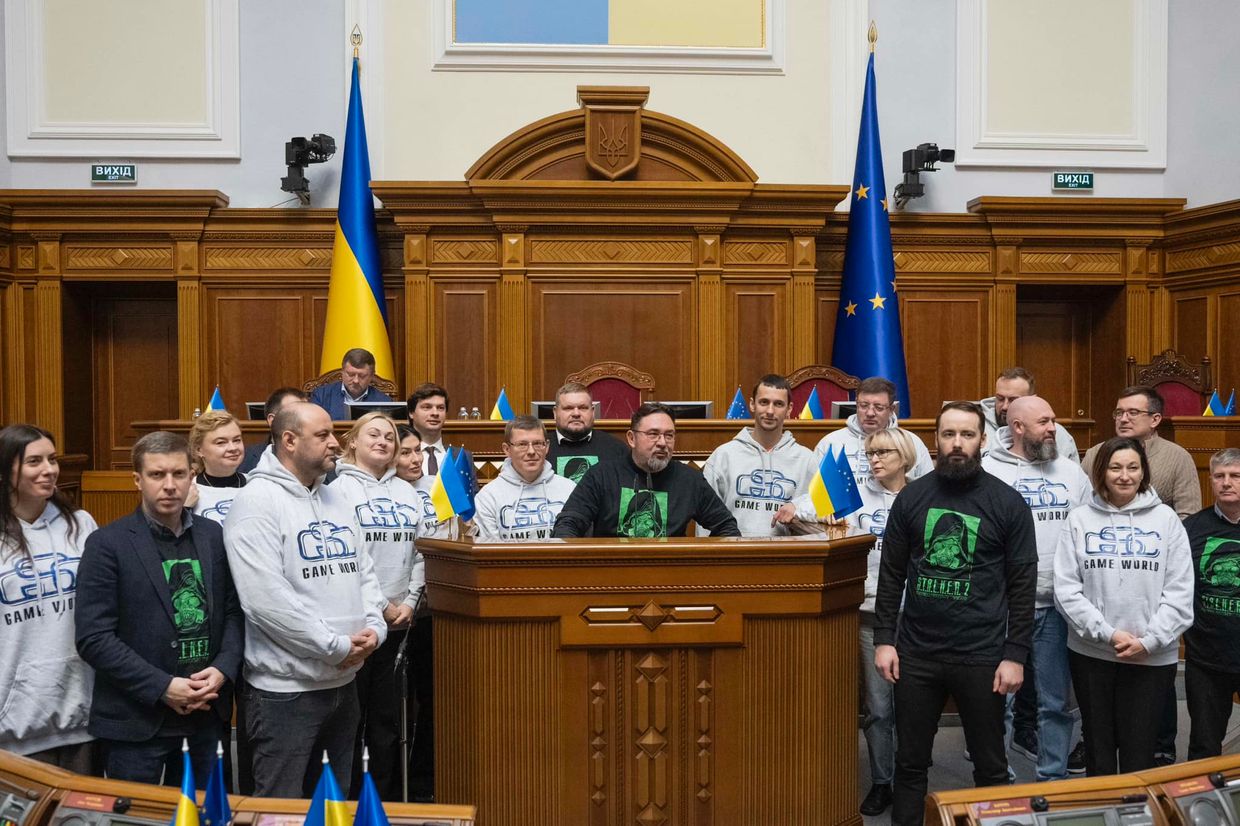
“This is a very powerful message to the world — that Ukraine and Ukrainians, even during such deadly struggles, do not give up. They are able to produce world-class products,” Poturaiev said.
Petro Shuklinov remembers the 2007 first S.T.A.L.K.E.R. game as “legendary” when he was growing up.
In Kyiv, where the former war correspondent is now stationed as an active service member, he downloaded the newest release as soon as it came out.
Shuklinov said part of what makes the game so meaningful to fighters is that it reminds them of their childhood: “As we keep this child within ourselves in our memories, our struggle makes sense.”
“And how much Ukrainian pain (the game) holds! No one will see this pain,” he added. “Unless they hear it on the radio in the game, where our songs are played.”
“But I see this pain in every pixel. For some, it’s just a game,” said Shuklinov. “But for me, it’s a manifesto: we are here, we are alive, we continue to fight.”
Kyiv Independent reporter Natalia Yermak contributed reporting.
Metro Awakening VR release expands famous Ukrainian post-apocalyptic game franchise
Metro Awakening, the fourth video game in the popular post-apocalyptic survival franchise set in Russia’s underground subway, was released on Nov. 7 by the virtual reality (VR) company Vertigo Games.
